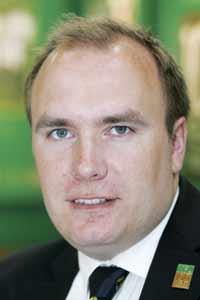Soapbox: Food chain must support free-range investors

Over the past week I’ve been looking through DEFRA, NFU and other industry statistics, preparing for various presentations and meetings. Looking at the industry as a whole, there has been a clear trend for strong performance and growth.
So it is no surprise that we have seen so many new entrants to the free-range egg sector. Average producer prices, according to DEFRA statistics, have been consistently 20% higher than three years ago and, since the highs in 2007/08, feed prices have held reasonably low. Meanwhile, demand has continued to grow.
In the last three years, Sainsbury’s and Morrisons have adopted corporate free-range policies, numerous food manufacturers and food service companies have made free-range commitments and Noble Foods, the UK’s largest egg packer, has successfully launched a national free-range egg brand in the form of the Happy Egg. All these factors have generated a steadily increasing demand for free-range eggs.
In reliable “can-do” British farmer spirit, the consequence of this demand has been rapid and constant investment in new and existing units. However the result, according to Poultry World’s last edition, is over supply in the marketplace and the spectre of farmgate price adjustment.
Looking forward, the fundamentals for the whole-egg sector look to be strong. Firstly, the oversupply in the wholesale market is against the backdrop of the UK’s net egg importer status. Furthermore, the trend over the past three years has been growth in retail sales of free-range eggs, and pressure continues to be exerted on food businesses by welfare groups to also shift sourcing policies to free range.
Against this backdrop, I cannot see why the free-range market cannot grow into its surplus over the coming years. The big question, however, is how many years and how painful the interim will be for those who have invested?
What is important now is that the wider supply chains recognise the long-term strategic importance of the investment that has been made by farmers. It costs no less to produce a free-range egg today than it did one month ago, and existing borrowings must be serviced. What long-standing and new free-range producers need is a longer term and responsible attitude from their customers and their customer’s customers.
My message to new entrants to free-range is the same as it would have been a year ago. Firstly, speak to the packers you can supply in your area, do plenty of research and don’t even think about making any kind of investment without a contract in place that you are confident in.
*Rob Newbery is the NFU’s chief poultry adviser
